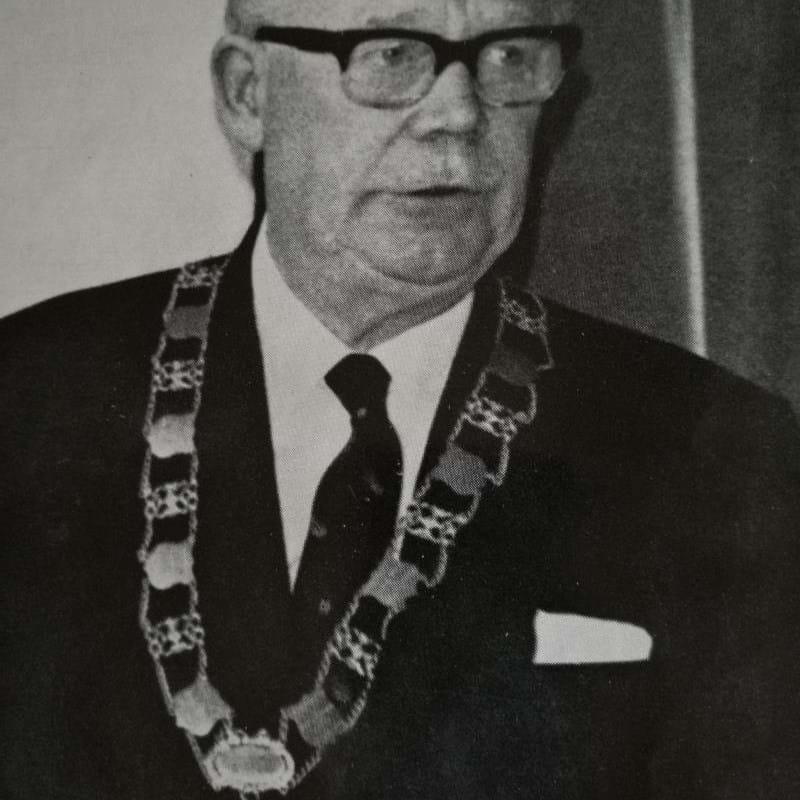
Herbert Ashton: 1972–1973
Herbert Ashton was born on 3 May 1911 and studied chemistry at London, where he also undertook research for his PhD in physical chemistry.
After his studies he secured a job with ICI's General Chemicals Division and his work there led to his "conversion" to chemical engineering. During the 2nd World War he was primarily engaged in the contracting industry serving food manufacturers, the steel industry and the Ministry of Aircraft Production.
After the war he joined the Research & Development Department of the Distillers Company at Epsom; initially concerned with the production of penicillin and streptomycin but soon took charge of the chemical engineering activities generally. During the late 1940s and 1950s he built up a team which successfully carried out the many laboratory achievements of Herbert Stanley and his fellow chemists through the pilot plant stage to full scale design. As a result of a number of processes developed under Herbert Ashton's direction, DCL's Research & Development Department gained international recognition, together with a major licence income for its parent company and providing the basis for several of its own most successful manufacturing operations.
In 1960 he moved to DCL's Head Office in London where he pioneered the setting up of company planning services which played an active role in developing DCL's chemical activities and helping to guide its strategy.
Subsequently he also took charge of licensing, market research & information services and remained responsible for all these functions when Distillers Chemicals & Plastics became BP Chemicals (UK) Ltd. In 1967 he became a director of the company and was then responsible for the Planning, Computing and Engineering Services within the company before taking charge of the Engineering Department in BP Chemicals International in 1971.
In all the post-war years he was an active member of the Institution, serving on Council as an Associate Member, Member and Vice President; as Chairman of the Board of Examiners; as a member of the Education and General Purposes & Finance Committees; and also as Honorary Treasurer from 1970-1972. He also served on a number of other bodies, including various committees of the Scientific Advisory Council.
Return to list